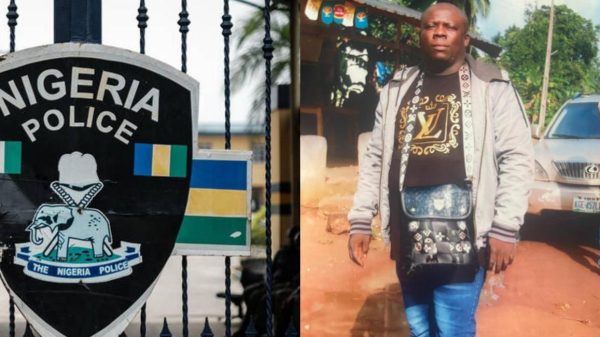President Bola Ahmed Tinubu has granted a presidential posthumous pardon to renowned environmental activist Ken Saro-Wiwa and eight other members of the Ogoni Nine, nearly 30 years after their execution under the military regime of General Sani Abacha.
Tinubu made the announcement on Thursday, June 12, 2025, during an address to a joint session of the National Assembly as part of the Democracy Day celebrations. The President described the Ogoni Nine as “national heroes” and said the pardon was part of efforts to foster unity, justice, and reconciliation.
“In the spirit of national healing and justice, I shall be exercising my powers under the Prerogative of Mercy to grant these national heroes a full pardon,” Tinubu declared. “Furthermore, I also confer posthumous national honours on Ken Saro-Wiwa (CON), the leader of the Ogoni Nine, and his fellow travellers, Saturday Dobee (OON), Nordu Eawo (OON), Daniel Gbooko (OON), Paul Levera (OON), Felix Nuate (OON), Baribor Bera (OON), Barinem Kiobel (OON), and John Kpuine (OON).”
He added that additional names would be considered for presidential pardon in consultation with the National Council of State.
The Ogoni Nine were executed in 1995 after being convicted on charges of murder during the Abacha-led military regime. The trial and subsequent executions were widely condemned by international human rights organisations, foreign governments, and civil society groups, who described the proceedings as deeply flawed and politically motivated.
Ken Saro-Wiwa, a writer and environmentalist, had been an outspoken critic of the environmental degradation in the oil-rich Ogoni region caused by multinational corporations, particularly Shell Petroleum. His activism gained international attention and spotlighted the environmental and human rights issues plaguing the Niger Delta.
Their executions sparked global outrage, leading to Nigeria’s temporary suspension from the Commonwealth of Nations and a wave of international sanctions. For decades, campaigners and the Movement for the Survival of the Ogoni People (MOSOP) have demanded a formal exoneration.
Reacting to the development, civil rights groups and Ogoni leaders welcomed the presidential pardon and national honours. The Movement for the Survival of the Ogoni People (MOSOP) hailed the gesture as “a long-overdue step towards justice and reconciliation,” but urged the government to go further by officially absolving the nine of all wrongdoing.
“This is a moment of truth and healing,” said MOSOP President, Legborsi Pyagbara. “President Tinubu has taken a bold step in correcting a historical injustice. But we must also work towards clearing the names of the Ogoni Nine completely.”
The posthumous awards included the Commander of the Order of the Niger (CON) for Ken Saro-Wiwa and the Officer of the Order of the Niger (OON) for each of his eight co-activists.
The announcement has rekindled calls for environmental justice in the Niger Delta, where communities continue to suffer the effects of decades of oil exploration and pollution.
By granting the pardon and conferring national honours, President Tinubu has reopened a national conversation on justice, accountability, and the long shadow of Nigeria’s military past. Whether this symbolic move will lead to broader reforms remains to be seen.
